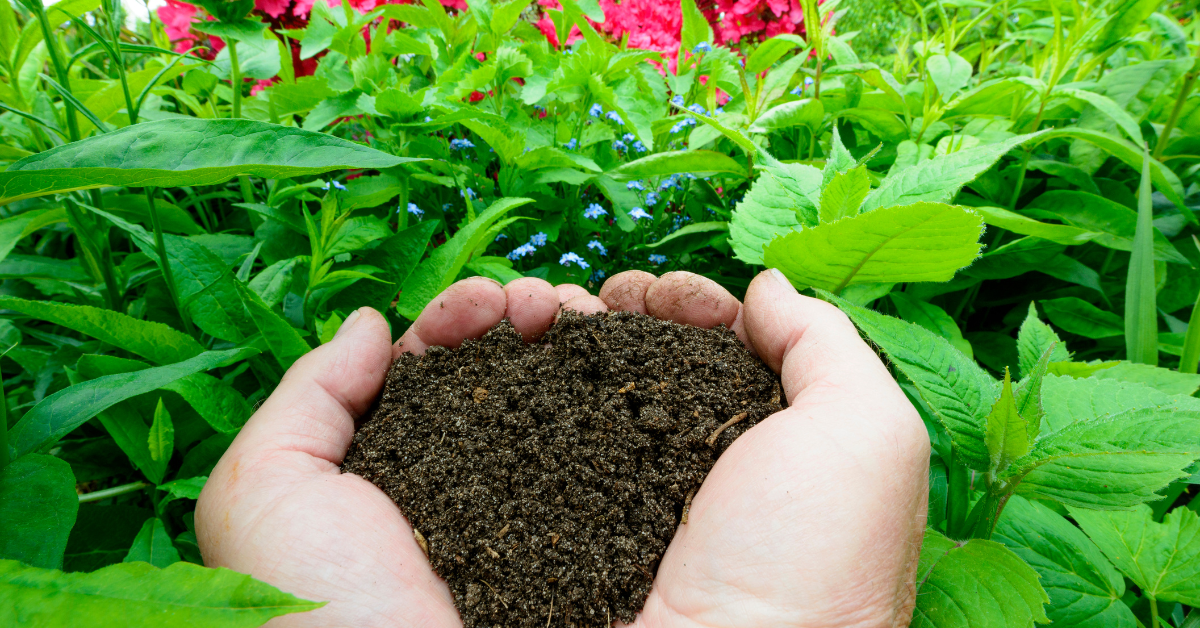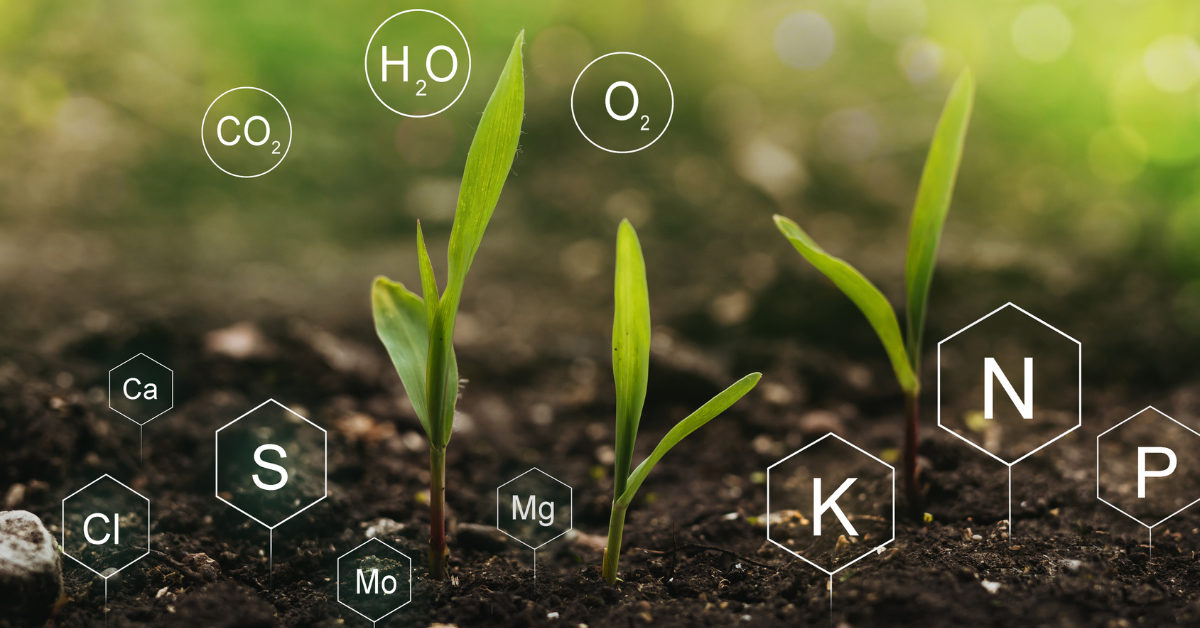How to Make Organic Fertilizer

Are you ready to take your gardening skills to the level? Imagine using techniques to produce viable seeds that benefit your garden and the planet while nurturing your plants with homemade nutrient-rich elixirs. Creating fertilizer at home combines eco-gardening with the satisfaction of DIY potions. Let's explore how to make organic fertilizer at home that benefits our vegetable garden.
In this article, we'll embark on a journey producing organic fertilizer from everyday items like food scraps, garden waste, and natural resources. Say goodbye to chemicals as we delve into the advantages of composting, vermicomposting, and crafting fertilizers from ingredients such as banana peels, coffee grounds, and eggshells. We'll also delve into the benefits of comfrey and fertilizer teas, guide you in making your seaweed-based fertilizer, and explore uses for wood ash.
Let's take action! This post will guide you to create your own fertilizer to help you prepare an amazing garden thrive. Get ready to embrace a future as we discover how to produce rich organic fertilizer right in the comfort of our own homes.
Natural Organic Fertilizer Components:

Before we dive into the techniques of creating fertilizers, it's important to understand the ingredients involved. Leafy growth relies on nitrogen, which can be sourced from materials such as kitchen scraps and grass trimmings. Phosphorus found in bone meal or food waste is beneficial to encourage root development. For plant health, potassium is crucial. It can be obtained from items like wood ash or banana peels. Also, homemade garden fertilizers should include calcium, magnesium, and sulfur.
16 Ways To Make Organic Fertilizer for Your Vegetable Garden
1. Make Your Own Compost Pile
Creating your homemade compost is a fulfilling process that involves recycling kitchen and garden waste to produce organic matter packed with nutrients. To get started, select or build a compost bin. Gather organic material such as kitchen scraps and garden trimmings. Layer these materials in the bin, alternating between green (grass clippings, green leaves, coffee grounds, etc) and brown (dry leaves, straw, cardboard, etc.) components. Organic composting promotes sustainability in your garden and provides your plants with natural nourishment for optimal growth.
Yard Waste for Fertilizer
Utilizing yard waste as a fertilizer is a method to tend to your garden while showing concern for the environment. Materials such as fresh grass clippings, fallen leaves, branches, and other plant remnants can be transformed into compost that enriches the soil and fosters optimal plant development. This gardening technique encourages growth within your garden space.
Food Scraps for Fertilizer
Kitchen scraps like vegetable peels, fruit peeling, or cores can be transformed into fertilizer. To produce nutrient-rich soil amendments, create a separate compost bin for food scraps and mix them with other compost materials.
Don't throw away those banana peels! They are packed with nutrients that can benefit your plants. Cut the peels into small pieces to make banana peel fertilizer and bury them near the plant roots. As they decompose, they release potassium, phosphorus, and calcium, promoting healthy growth.
Egg shells are good for composting and make an excellent DIY fertilizer. Crush the eggshells into fine powder and sprinkle them around the base of your plants. Eggshells add calcium to the soil, crucial for strong cell walls and overall plant structure.
2. Coffee Grounds as Fertilizer
Using coffee grounds as a fertilizer for plants is an idea. Coffee grounds are rich in nitrogen and other essential nutrients that promote plant growth. You can make the most of coffee grounds, incorporate them into your compost, apply them as mulch around your plants, or even feed them to worms in vermicomposting systems.
It's important to note that coffee grounds work best for plants that thrive in soil-based environments. Combining them with other materials is crucial to maximize their effectiveness. Coffee grounds can enhance soil structure when used correctly and with ingredients. Provide valuable nutrients for robust and healthy plant growth.
3. Vermicomposting
Vermicomposting, also known as worm composting, is an excellent method to transform organic waste into black gold for your plants. Please set up a worm composting bin with bedding materials like shredded paper and add red worms to it. Once the worms have finished digesting the organic debris, the resulting worm castings will be rich in nutrients and can be used as fertilizer.
4. Epsom Salt Fertilizer
Epsom salt, composed of magnesium and sulfur, is a fantastic plant fertilizer. Dissolve a tablespoon of Epsom salt in a gallon of water and use it to water your plants. This can improve nutrient absorption and aid in chlorophyll production.
5. Comfrey Fertilizer
Comfrey is a nutrient accumulator that draws nutrients from deep within the soil. To make comfrey fertilizer, grow comfrey plants in your garden. Harvest the leaves and use them as mulch in vegetable gardens, or create a liquid fertilizer by steeping them in water for a few weeks.
6. Nettle Fertilizer
Nettle plants are rich in nitrogen and can be used to create a potent liquid fertilizer. Wear gloves to avoid stinging and gather nettle leaves. Steep them in water for a few weeks, and your nutrient-packed nettle fertilizer will be ready.
7. Homemade Liquid Seaweed Fertilizer
Making seaweed fertilizer is a great option if you live near the coast. Harvest seaweed, rinse off the salt, and soak it in water for a couple of weeks. The resulting liquid can be diluted and used to nourish your plants.
8. Animal Manure or Raw Manure Fertilizer
Manure from herbivores like cows, horses, or chicken manure is a valuable organic fertilizer. However, it's essential to compost or age the fresh manure well before using it in the garden to avoid burning plants with excessive nitrogen. It contains nutrients such as nitrogen, phosphorus, and potassium, which are beneficial for the growth of plants.
By applying composted manure to garden beds, vegetable patches and containers throughout the growing season, we can improve soil, enhance availability and support the growth of microorganisms in the soil. This practice promotes plant development.
9. Green Manure
Consider planting cover crops like clover or alfalfa in garden beds during the off-season. Green manure is a sustainable practice in agriculture and gardening. It involves growing crops that are added back to the soil while still green. The main goal is to enhance soil fertility by releasing stored nutrients and improving the structure of the soil.
These green manure crops can be legumes or non-legumes, offering advantages such as nitrogen fixation and adding matter. It is commonly used as a cover crop when the land is not cultivated and integrated into crop rotation systems to ensure the long-term health of garden soil and sustainability.
10. Wood Ash or Fireplace Ash Fertilizer
If you have a wood-burning fireplace, don't dispose of the wood ash; use it to replace garden lime as a natural fertilizer. Wood ash contains potassium and calcium carbonate, both beneficial for plant growth. Sprinkle wood ash around your garden sparingly, as excessive use can raise the pH of the soil.
11. Used Fish Tank Water
One way to provide nutrients like nitrogen, phosphorus, and potassium to your plants is by using water from a fish tank as a fertilizer. Combine it with dechlorinated water to create a nourishing solution for watering your plants. This method does not only promote plant growth. It also improves the health of the garden soil by introducing beneficial microorganisms and maintaining proper pH levels.
Just be cautious about using water from set-up aquariums or those with salt content. By observing how your plants react and adjusting the application accordingly, you can effectively engage in eco-gardening practices.
12. Compost Tea
Compost tea is a fertilizer created by soaking mature compost in water. It's packed with microorganisms that promote plant growth, enhance soil health, and even prevent plant diseases. To whip up some compost tea, steep your compost in chlorinated water for 1 to 3 days. Strain the liquid, and dilute it a bit, if desired, before giving it to your plants. This nourishing tea packs a punch of nutrients while being kind to our environment—a win-win for any eco-gardener!
13. Rice Water
Rice water serves as a nutrient fertilizer obtained by soaking or fermenting rice in water. This remarkable liquid contains nutrients and amino acids that promote plant growth and the formation of roots. When applied as fertilizer, rice water significantly enhances the health of plants, boosts their resilience against diseases, and contributes to gardening practices. For results, apply rice water to your plants regularly or as needed.
14. Vinegar Fertilizer
Vinegar has a few applications in the garden, although it is not commonly utilized as a substitute for commercial fertilizers. Some plants thrive in acidic soil conditions, but care must be taken to protect those that don't. Vinegar is a natural weed killer and can adjust the soil pH for acid-loving plants. When added to compost, it speeds up the decomposition process. Traditional fertilizers provide a more stable source of nutrients, and it's always a good idea to talk to a gardening pro for tailored advice.
15. Pine Needle Natural Fertilizer
Pine needles are perfect for acid loving plants; it lowers soil pH. Perfect for plants such as azaleas, blueberries, rhododendrons, and hydrangeas. Mulch should be 2–4 inches thick around these plants. Pine needles decay and release acids that nourish plants. However, pine needle mulch should be supplemented with fertilizers or compost for balanced nutrient delivery.
16 Rock Dust Organic Soil Enhancer
Volcanic rock dust, while not as commonly used as traditional commercial fertilizers, can offer several benefits when incorporated into a garden. Rich in essential minerals and trace elements, volcanic rock dust is a natural fertilizer that enriches the soil with valuable nutrients. It provides a sustainable and eco-friendly option for gardeners looking to enhance plant growth and soil health. The rock dust's porous structure aids in retaining moisture and improving soil aeration, benefiting the overall plant root system.
Additionally, volcanic rock dust promotes microbial activity in the soil, contributing to better plant nutrient uptake. As with any gardening practice, seeking guidance from a seasoned gardening expert can help maximize the advantages of using volcanic rock dust to tailor its application to the specific needs of the garden and the plants being grown.
Benefits of Homemade Natural Fertilizers for Garden Soil:
There are advantages to using homemade natural fertilizers for your vegetable garden. Let's explore these benefits;
Sustainability of Natural Fertilizers:
Organic fertilizers, such as compost, animal manure, and plant residues, are utilized in their production. Using these materials reduces reliance on chemicals that can harm the environment and contaminate water sources.
Improved Soil Structure:
Organic fertilizers enhance the texture and structure of the soil by increasing its ability to retain water and nutrients. They also promote aeration of the soil, making it easier for roots to penetrate and efficiently absorb nutrients.
Gradual Nutrient Release:
Unlike fertilizers that provide a boost but quickly deplete the soil, organic fertilizers release nutrients slowly over time. This gradual nourishment ensures growth and long-term fertility for your plants.
Rich in Nutrients and Microorganisms:
Organic fertilizers contain nutrients for root crops like nitrogen, phosphorus, and potassium (N-P-K). Additionally, they house microorganisms that improve availability while supporting root development and suppressing harmful soil pathogens. N-P-K is the minimum nutrient plants require, organic fertilizers are usually much more nutrient-rich.
Reduction in Chemical Buildup:
Frequent use of chemical-based fertilizers can result in accumulated soil chemicals over time. This buildup can cause imbalances and potential harm to your plants. Organic fertilizers possess qualities that reduce the risk of soil toxicity through natural decomposition.
Homemade Fertilizers Promotes Biodiversity:
Fertilizers have an impact on promoting biodiversity and supporting insects. They contribute to developing a thriving ecosystem in the soil, which fosters the growth of beneficial insects and earthworms. These organisms play a role in pest control plant food, and help maintain a balanced and healthy ecosystem.
Conclusion
In conclusion, understanding the process of creating our own organic fertilizer using household items enables us to explore options for nurturing our gardens while supporting Mother Nature's natural cycles. Using kitchen scraps, garden waste, and other organic materials, we can produce compost that nourishes our plants and rejuvenates their soil.
We hope you learn how to make organic fertilizer from this great article. Embracing organic gardening techniques and using DIY plant fertilizer not helps reduce our environmental impact but also mitigates the harmful effects of synthetic chemicals. As we provide these nourishing substances to our plants, we simultaneously give back to the Earth by promoting ecosystems and fostering biodiversity.
Let us embark on this journey of organic garden and caring for our gardens hand in hand with nature. By creating our own fertilizer at home, we become caretakers of the land, protectors of the soil, and contributors to a healthier world. Ultimately, our efforts will result in flourishing gardens, healthy plants, thriving plants, and abundant rewards from our eco endeavors. We can create a flourishing world where each garden showcases nature's flawless blueprint.
